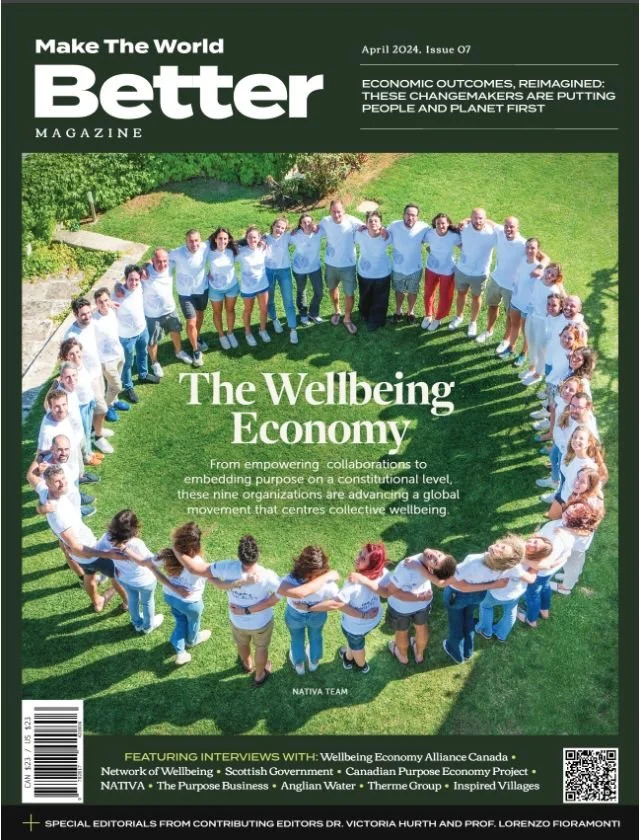“The Future of Plastics” Webinar: Key Takeaways
On May 7th, 2020, experts from The Purpose Business and leading professors from Oxford’s Smith School of Enterprise and the Environment co-hosted a webinar focused on “The Future of Plastics: How do we move to a new plastics economy?”
The moderator was Dr. Merrin Pearse of The Purpose Business so we asked him about his key takeaways from the discussion.
Plastics are not the problem; it’s how humans have designed them and the way we use them. The way we use and dispose of them is unsustainable rather than using plastic wisely as a resource multiple times.
Plastics are integral to modern society and indispensable to a sustainable future if we redesign how they are made and recovered for reuse.
While for many it may be hard to imagine a world without plastic pollution. The material has become visible around the world on land and in our oceans and are also hidden as microplastic within our water and food. But it does not have to be this way, and there are numerous opportunities to change our relationship with plastics especially through new approaches in chemistry as Professor Charlotte Williams from the University of Oxford shared. This includes using chemical recycling technology instead of mechanical recycling which currently damages the polymers and their potential use in new products of the same quality.The growth in bioplastics can affect land-use, studies show that in the European Union, ~5% of currently set-aside land used to grow wheat would meet plastics needs. i.e. the land-use issue is important but is not at the same scale for plastics as it is for biofuels.
While the right set of regulatory interventions and economic incentives create more business opportunities around the sustainable use of plastics, you can already create added value without waiting for legislation.
We have seen this through the work that The Purpose Business does with companies to explore their core purpose and the role they can play in changing the market without depending on regulation. See examples of organisations working toward responsible business starting with single-use plastic and waste reduction via https://thepurposebusiness.com/case-studies.
The webinar’s chat room had a very lively discussion, with numerous insightful comments and questions raised on a variety of topics:
A) What if plastics/polymers were to be handled as "toxic" or as hazardous waste?
Which was answered by panellist Professor Cameron Hepburn, Smith School, the University of Oxford with the following thoughts:
We certainly need to treat different materials differently.
Some plastics are totally "natural" in the sense that they can come from biological processes and that they will naturally biodegrade. These polymers are not dangerous, and we should not treat them as such.
Other plastics have some pretty nasty additives in them that we do not want circulating around the natural environment. Ideally, we would find ways to deliver the properties desired without these toxic elements.
This question led to a point shared by Dr Norman Ebner, Smith School, the University of Oxford about the challenge that most plastics have low biodegradability, meaning that living organisms are not capable of decomposing the material. To understand more about bio-based and bio-plastic along with compostability, you can read this article by The Purpose Business.
B) Many plastics contain chemical additives which are added during the manufacturing process to provide different performance properties during their use or to help breakdown products when disposed of. How can such toxic chemicals best be regulated and what are your thoughts on finding substitutes that are less toxic? Also, how feasible is it to require manufacturers to disclose a full list of additives/ingredients in their polymer products?
Professor Charlotte Williams, University of Oxford responded with these points:
Plastics are generally ~90% polymer and up to 10% additives. We must consider the toxicity and impacts of both. Chemistry as a subject is familiar with designing to minimise toxicity but more research in replacing currently used additives both to reduce toxicity and facilitate recycling is a key research area. The University of Oxford is looking for projects where they can work with businesses to research these issues further.
C) How do you see the price of virgin plastics contributing, and what factors shape this price? We know from recyclers that this is an obstacle to circularity.
Professor Cameron Hepburn responded that the problem is that the full economic costs (i.e. including the environmental costs) of extraction and production of plastics from virgin materials are not fully included in the market pricing - this is an area where government policy and regulation can help.
—
You can watch the full webinar via https://www.youtube.com/watch?v=A7kI8oJy02M and refer to the presentation slides at https://www.smithschool.ox.ac.uk/events/200517-future-of-plastics.pdf
If you have any questions around the future of plastics or are looking for support with implementing a project within your organisation, you can reach out to The Purpose Business at info@thepurposebusiness.com or through our Contact page.




